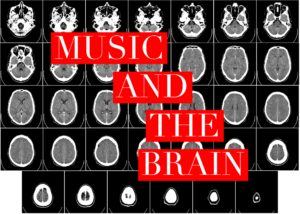
Music and the brain
Listening to music has so many positive benefits to our brains and can be used as part of brain training.
Take, for example, our memories. How many songs evoke special memories in your mind or how many songs are you able to recite word for word, but you struggle to remember what you did last week?!
Learning and remembering songs is proof of the positive impact music has on the brain. We teach children songs to help remember the colours of the rainbow, the alphabet, numbers, how to do something and these songs stick. Just think of the numerous nursery rhymes you can recite at a moment’s notice.
You may even catch yourself creating a song in your head to remember something!
Listening to and playing music is a unique and powerful way to exercise your brain and, a recent study by Daniel Levitin and colleagues, from the Department of Psychology at McGill University in Montreal Quebec, published in the journal Trends in Cognitive Sciences, reveals that our brains actually release dopamine when listening to or playing music.
Declared the ‘happy’ neurochemical, dopamine is associated with experiencing pleasure and reward; notably during and after exercise, sex and enjoying food. Just think of your own experiences…
However, this is the first time that music has been associated to the same degree.
Better than drugs
One of the studies focused on patients who were about to undergo surgery. Participants were randomly assigned to either listen to music or take anti-anxiety drugs. Scientists tracked patient’s ratings of their own anxiety, as well as the levels of the stress hormone cortisol. The results concluded that the patients who listened to music had less anxiety and lower cortisol levels than those patients who took the drugs.
This is certainly something we can all probably relate to. How many times have you put music on to calm yourself down or distract yourself from worries? Indeed, patients are often given music to listen during procedures in order to keep them calm and distracted.
A brain barometer
Have you ever wondered why you like certain pieces of music?
In a separate exercise of the same study, 19 participants listened to 60 different unknown songs while being monitored in an MRI scanner. One of the brain areas highlighted was the superior temporal gyrus. According to the study, thegenres of music that a person listens to over a lifetime impact how the superior temporal gyrus is formed. While this doesn’t necessarily predict whether a person likes a particular piece of music, this part of the brain is involved in storing templates from what you’ve heard before, almost like a music recommendation system.
Music aiding science
The great thing about this study is that it not only highlights the positive impact music has, it also highlights the important role it may have in helping to understand the brain.
If scientists can use music to study which chemicals in the brain are involved in music listening and performing and in which parts of the brain they are active, it could pave the way to understanding neurological and psychological problems and possible cures.
Our proof
Nevertheless, for The Rock Project Berkshire, it reinforces what we see everyday in our classes. The utter joy and happiness that our students experience and the positive impact music has. We don’t need to conduct scientific research when this is presented to us in real time. We see that our students are happy, more confident and proud of themselves, stepping outside of the comfort zone they initially didn’t want to do. However, if we did have an MRI scanner to hand, we’d likely see dopamine release off the scale!
Give yourself a test! Do you feel happy when you hear certain songs? Does it make you want to dance, smile, jump around? This is a wonderful gift to pass on to children and we are so lucky that we get to be part of this.
Harmeet June 4th, 2018
Posted In: Uncategorised